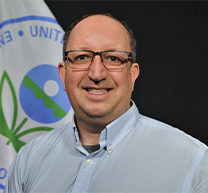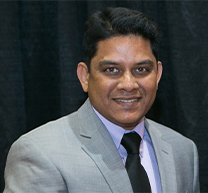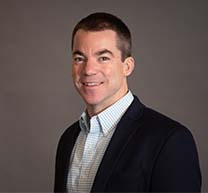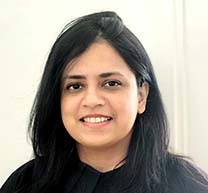GEC en eSummit 2024
LIDERAZGO EN SOSTENIBILIDAD: CRITERIOS DE LA PRÓXIMA GENERACIÓN DE LA ETIQUETA ECOLÓGICA EPEAT Y PERSPECTIVAS DE LAS PARTES INTERESADAS EN LA CADENA DE SUMINISTRO
Miércoles - 23 de octubre - 2:00 - 3:45 pm CT
Únete al Global Electronics Council (GEC) en la Cumbre de eSostenibilidad para asistir a una sesión especial en la que presentaremos los criterios de la ecoetiqueta EPEAT® de próxima generación. Estos nuevos criterios, que se lanzarán en 2025, fijarán las expectativas del mercado en cuanto a la sostenibilidad de los productos TIC en cuatro áreas prioritarias: cambio climático, circularidad, productos químicos y cadenas de suministro responsables.
Esta sesión es una oportunidad única para que los profesionales del sector conozcan los criterios actualizados y escuchen directamente a las partes interesadas de la cadena de suministro de las TIC. Tanto si es usted comprador, proveedor o reciclador, sabrá cómo afectarán estos cambios a sus objetivos de sostenibilidad y a sus prácticas operativas.
Ponentes destacados

Chris Newman
Científico medioambiental, EPA

Puneet Shrivastava
Ingeniero principal, Dell
David Hirschler
Director de Sostenibilidad, ERI

Bob Mitchell
Consejero Delegado, Global Electronics Council

Doctora Shahana Althaf
Agenda del acto
23 de octubre de 2024
2:00 - 2:10 Introducción a GEC y EPEAT
2:10 - 2:40 Visión general de los criterios actualizados de EPEAT
2:40 - 3:20 Perspectivas de las partes interesadas sobre la próxima generación de criterios de la etiqueta ecológica EPEAT
3:20 - 3:30 Preguntas y respuestas y recapitulación
Esta sesión ofrecerá valiosas perspectivas sobre el futuro de la sostenibilidad de los productos TIC, centrándose en los criterios de circularidad. Los líderes del sector compartirán sus puntos de vista sobre los retos y oportunidades de aplicación que plantean las nuevas normas.
Manténgase a la vanguardia uniéndose a nosotros para explorar cómo la próxima generación de criterios EPEAT ayudará a dar forma al panorama de la tecnología sostenible en los próximos años.
Póngase en contacto con nosotros en criteria@gec.org si tiene preguntas o desea más información.
Más sobre SERI
El papel de SERI es reunir a todas esas partes dispares para lograr un cambio real. Esta organización única es la única del mundo sin ánimo de lucro que cuenta con la colaboración de múltiples partes interesadas y se centra exclusivamente en minimizar los riesgos para el medio ambiente y la salud que plantean los aparatos electrónicos usados y al final de su vida útil, al tiempo que maximiza el valor social y económico que presentan estos equipos. SERI quiere que todos pensemos de forma diferente sobre la electrónica, que actuemos de forma más responsable y que tomemos decisiones con nuestros aparatos electrónicos utilizando la sostenibilidad como nuestra estrella polar. Porque cuando lo hagamos, protegeremos a las personas y al medio ambiente, al tiempo que nos aseguramos de que nuestros aparatos electrónicos hacen un mundo de bien.
Más información sobre el Consejo Mundial de la Electrónica
El Global Electronics Council (GEC) acelera el cambio sistémico para crear una industria electrónica 100% sostenible en 2050.
- Esto significa cero emisiones netas, cero residuos, neutralidad hídrica y mínimo impacto adverso sobre el medio ambiente y los derechos humanos a lo largo del ciclo de vida de los productos y servicios.
- Como administradores de la ecoetiqueta EPEAT, establecemos la norma mundial de la electrónica sostenible.
- Ayudamos a los fabricantes y compradores de productos electrónicos a cumplir sus objetivos de sostenibilidad a través de nuestra acreditación, defensa y liderazgo líderes en el mundo.
- Estamos reconfigurando la relación del mundo con la tecnología y los recursos naturales y haciendo posible que la electrónica pase de ser un reto medioambiental y social cada vez mayor a una solución sostenible y potenciadora.
Nuestro trabajo acelera el cambio en cuatro ámbitos de acción fundamentales:
- Acción por el clima: Guiar al mercado para reducir las emisiones de gases de efecto invernadero en la fabricación, las cadenas de suministro y el uso de productos electrónicos.
- Circularidad: Garantizar que los fabricantes de productos electrónicos diseñan sus productos y embalajes para que sean duraderos, reutilizables y reciclables, con vistas a eliminar todos los residuos de la industria.
- Sustancias químicas preocupantes: Ayude a eliminar el uso de sustancias químicas tóxicas peligrosas para la salud humana y el medio ambiente.
- Cadenas de suministro responsables: Salvaguardar el abastecimiento responsable de materiales, las prácticas laborales justas y la salud y seguridad de los trabajadores en la cadena de suministro de productos electrónicos.

David Hirschler
Director de Sostenibilidad, ERI
David Hirschler es el Director de Sostenibilidad de ERI, el principal reciclador de residuos electrónicos del país. David es responsable de las iniciativas internas y externas de ERI en materia de sostenibilidad y circularidad, así como de las responsabilidades legislativas de ERI, que abarcan desde la normativa sobre responsabilidad del productor hasta la normativa sobre protección de datos. Además, David es presidente de la junta de FABSCRAP, una organización sin ánimo de lucro centrada en el reciclaje y la reutilización de residuos textiles comerciales. David ha trabajado en el campo del reciclaje durante más de 20 años y tiene un máster en Política y Planificación Urbana y Medioambiental por la Universidad de Tufts.

Chris Newman
Científico medioambiental, EPA
Chris Newman es científico medioambiental de la Agencia de Protección del Medio Ambiente de Estados Unidos. Lleva más de 20 años trabajando en la gestión sostenible de materiales y la gestión de productos electrónicos al final de su vida útil. Ha trabajado con personal de agencias estatales de medio ambiente de la región del Medio Oeste para apoyar el desarrollo y la gestión de sus programas estatales de residuos electrónicos. Chris ha participado en el desarrollo de criterios para varias normas de compra sostenible que cubren los productos electrónicos y ha trabajado con partes interesadas federales para desarrollar recursos de gestión del final de la vida útil de los productos electrónicos, programas que ayudan a mejorar la gestión de los activos electrónicos y otras prácticas sostenibles. A medida que ha ido avanzando la tecnología, también se ha involucrado en cuestiones relacionadas con las baterías de litio y la energía fotovoltaica, así como con los minerales críticos. Chris también es copresidente del comité directivo de la Red Internacional de Gestión de Residuos Electrónicos, una asociación entre la EPA estadounidense y el Ministerio de Medio Ambiente de Taiwán que ayuda a mejorar la gestión de los residuos electrónicos en países asociados de todo el mundo.

Puneet Shrivastava
Ingeniero principal, Dell
Puneet es el jefe de dominio de Ecodiseño y Materiales Restringidos en el equipo de Arquitectura de Cumplimiento de Dell. Con más de 16 años de experiencia en el equipo de conformidad de productos de Dell, Puneet ha dirigido varios programas de conformidad de diseño ecológico, materiales y devolución de productos. Desempeñó un papel fundamental en el establecimiento del primer programa certificado de plástico reciclado de ciclo cerrado del sector, y formó parte del comité técnico que trabajó en la importante revisión de la norma R2V3. Puneet también se aseguró de que todos los socios ITAD de Dell obtuvieran la certificación según la norma R2V3. Encabezó la transición hacia la digitalización de los procesos de declaración de conformidad de materiales, lo que aumentó significativamente la eficiencia y la transparencia del proceso de aprobación de piezas.
Durante los dos últimos años, Puneet ha sido miembro activo del comité técnico de Uso Sostenible de Recursos y Sustancias Químicas Preocupantes del GEC, trabajando en la próxima revisión de la norma y representando a Dell. En la actualidad, colabora con múltiples partes interesadas tanto dentro como fuera de Dell para garantizar que la sostenibilidad de los productos siga siendo una prioridad máxima.

Doctora Shahana Althaf
Científico Investigador, Desarrollo de Criterios de Sostenibilidad
Como investigadora científica, Desarrollo de Criterios de Sostenibilidad, la Dra. Shahana Althaf investiga el impacto medioambiental y social del ciclo de vida de la electrónica para desarrollar métricas de rendimiento medioambiental y herramientas para cuantificar los beneficios de los productos tecnológicos sostenibles. También realiza análisis de mercado de tecnologías para desarrollar la hoja de ruta que amplíe el impacto de la misión de GEC.
La Dra. Althaf aporta más de nueve años de experiencia en investigación sobre sostenibilidad, tanto en proyectos académicos como en el sector empresarial. Antes de incorporarse a GEC, trabajó como Científica de Sostenibilidad para una consultora de contabilidad de gases de efecto invernadero, donde dirigió proyectos corporativos de impresión de huellas para clientes de los sectores textil y electrónico durante más de dos años. Ha trabajado como contratista individual para la agencia de las Naciones Unidas UNITAR para llevar a cabo investigaciones sobre la gestión de residuos electrónicos en las Américas y es una de las autoras del informe Global E-waste Monitor 2024 de la ONU.
El Dr. Althaf tiene un doctorado en Sostenibilidad y un máster en Ingeniería de Telecomunicaciones por el Instituto Tecnológico de Rochester (EE.UU.). Es licenciada en Ingeniería Electrónica y de Comunicaciones. Tras su doctorado, trabajó como asociada posdoctoral en el Centro de Ecología Industrial de la Universidad de Yale durante más de dos años. Durante su estancia posdoctoral en Yale, también fue miembro del Global Future Council for Net Zero Transition del Foro Económico Mundial. La Dra. Althaf ha publicado varios artículos de revistas de gran impacto, capítulos de libros e informes sobre el tema de la sostenibilidad en el sector de la electrónica. Sus investigaciones han sido galardonadas con premios como el The Journal of Industrial Ecology best paper prize - Graedel Prize 2020 y el RCR best paper award 2019. Reside en Rochester, Nueva York.

Bob Mitchell
Consejero Delegado, Global Electronics Council
Como Consejero Delegado del Global Electronics Council, Bob se encarga del liderazgo y la supervisión estratégica de la organización para cumplir su visión y su misión. Aporta una amplia experiencia en empresas y derechos humanos, sostenibilidad medioambiental, gestión de organizaciones sin ánimo de lucro y sostenibilidad y programas corporativos.
Como antiguo vicepresidente de Derechos Humanos y Medio Ambiente de Responsible Business Alliance (RBA), Bob dirigió el desarrollo y la aplicación de estrategias para programas de conducta empresarial responsable en un entorno multisectorial y de múltiples partes interesadas. En este puesto, dirigió la creación y el lanzamiento de esfuerzos significativos en áreas como la Diligencia Debida en el Trabajo Forzoso, la Descarbonización de las Cadenas de Suministro, la Circularidad y la Resiliencia de la Cadena de Suministro.
Es un veterano de Hewlett Packard y Hewlett Packard Enterprise, con más de una década y media trabajando en el campo de la sostenibilidad. Antes de trabajar en la RBA, fue Director de Responsabilidad Social y Medioambiental Global en Hewlett Packard Enterprise, dirigiendo un equipo de profesionales en derechos humanos, administración medioambiental de productos, responsabilidad de la cadena de suministro y minerales conflictivos, entre otras áreas temáticas. Bob también formó parte del Consejo de Administración de RBA y del Consejo Asesor de Social Accountability International (SAI). Posee un MBA por la Universidad de Arizona y una licenciatura por la Universidad de Virginia.

